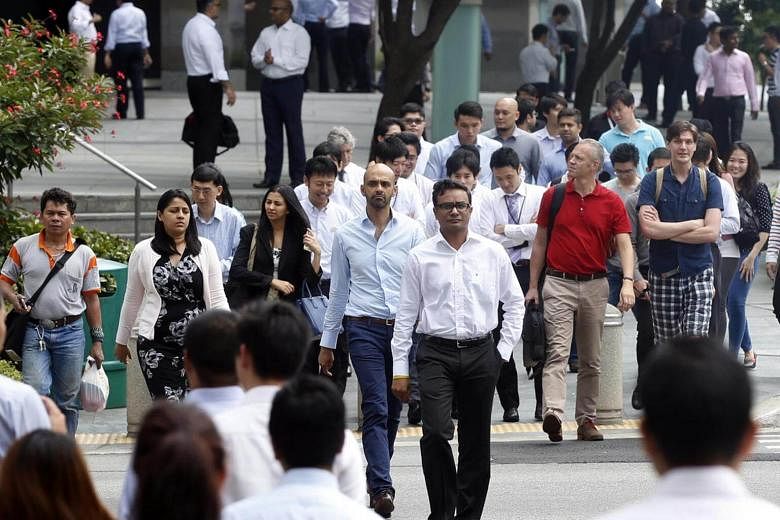SINGAPORE - Employees in Singapore do not feel empowered to embrace the demands of the digital workplace, a new study has found.
While 62 per cent consider themselves mobile workers and spend at least 20 per cent of their time working outside of their offices, only 37 per cent feel empowered by their organisation to embrace the demands of the digital workplace, the Asia Workplace 2020 study by Microsoft found. In addition, only 26 per cent of respondents agree that their organisation is committed at a leadership level to ensure every employee is included in closing the digital skills gaps within the workforce.
The study involved close to 4,200 working professionals from 14 markets in Asia, of which 307 were from Singapore. It sought to understand shifting employee behaviours and gaps in the workplace when it came to productivity, collaboration and flexi-work practices.
"As Asia primes itself to become the most connected market with more than half of all mobile connections originating from the region by 2021, organisations need to rethink how they empower their workforce with the right culture, policy, infrastructure and tools to maximise their potential," said Mr Kevin Wo, managing director at Microsoft Singapore. "This means enabling collaboration from anywhere, on any device. However, it is also critical for business leaders to evaluate and implement changes to counter cultural and management challenges that are hindering employees to work seamlessly from wherever they are, which will in turn, hinder an organisation's growth and progress in the digital age," he said.
An earlier version of the Study conducted in 2015 found that 39 out of 100 respondents in Singapore were ready for the New World of Work, whereby organisations had the right People, Place and Technology principles in place to enable a productive, collaborative and innovative workforce. This year, 44 out of 100 respondents felt so, indicating that organisations in the market are slightly more equipped, although more can be done to move the needle.
The study also found that organisations need to address several structural challenges within the workplace to ready themselves for the digital age, as well as flexi-work practices like leadership, culture and access to newer technologies. While only 26 per cent respondents agreed their leaders were committed to bridging the digital skills gap, only 23 per cent said the organisation had invested in culture development and 22 per cent feel that their organisation had given them tools to simplify workflows.
Employees feel that teams face problems like too many face to face meetings taking up productive time, rigidity in adopting new ways of work, slow pace of response to internal issues, and closed attitude to new initiatives are some of the challenges they face.
However, strong leadership and vision, support from manager and access to technology tools for collaboration can help build more collaborative teams, the study found.


